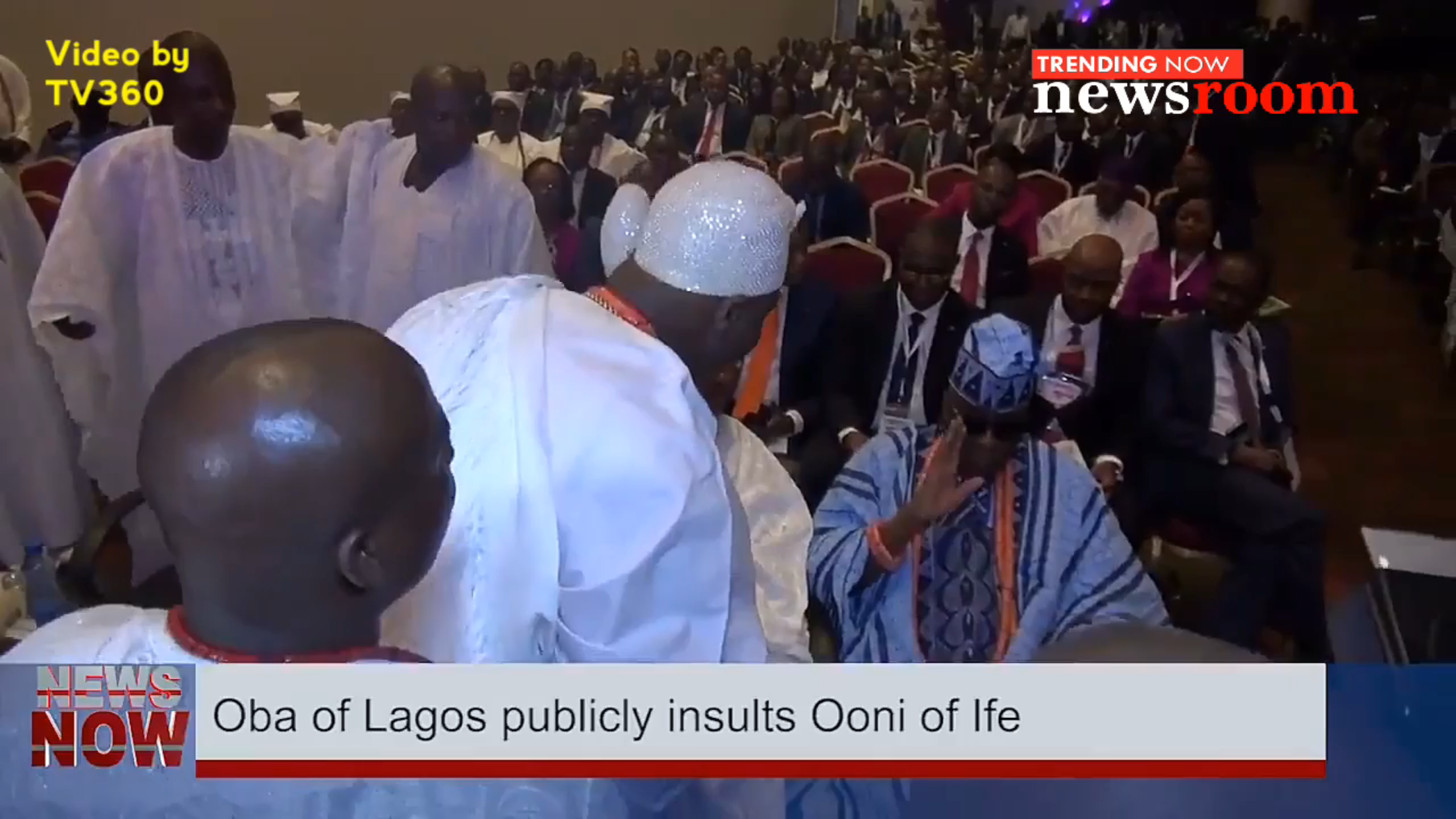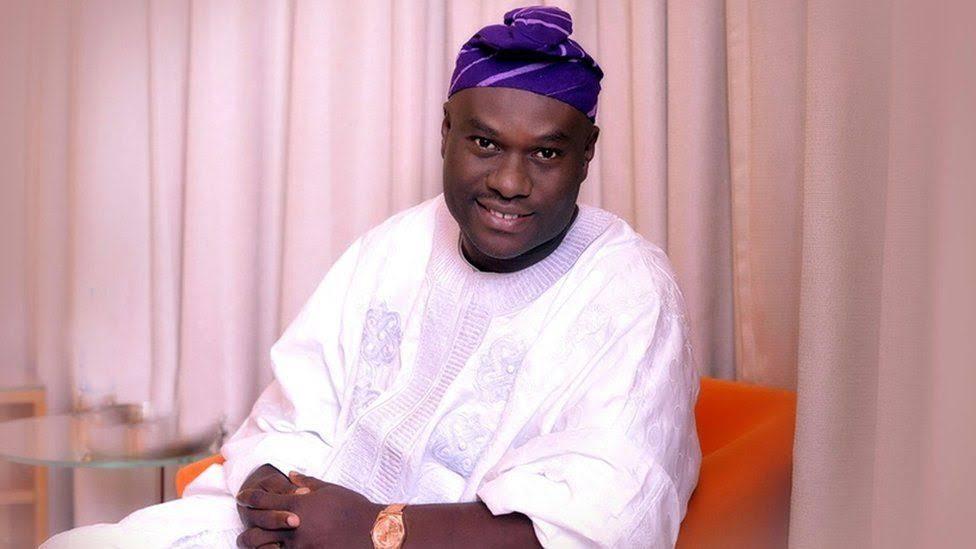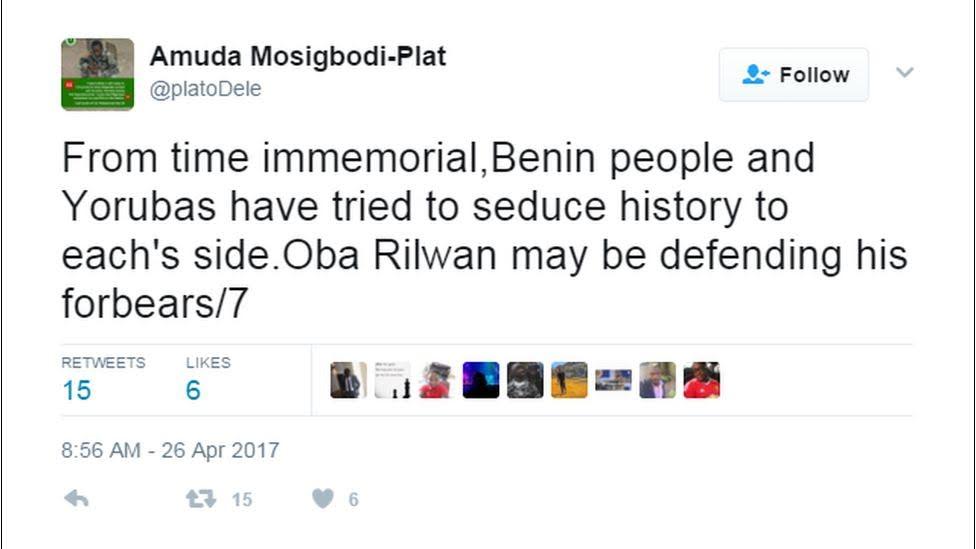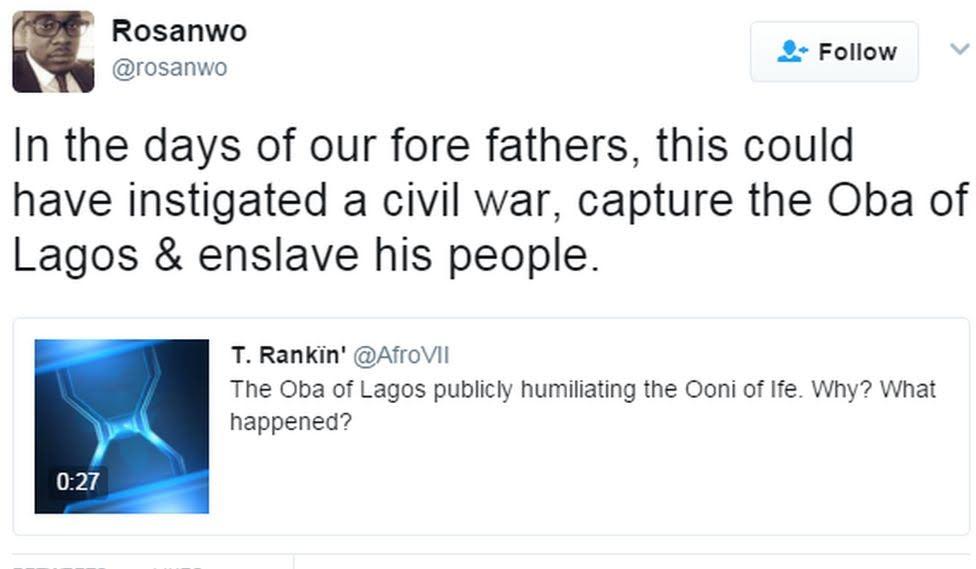


Why Oba of Lagos 'snubbing' Ooni of Ife shocked Nigeria
 Prosper
Posts: 1,432
Prosper
Posts: 1,432

Video footage showing a traditional leader, the Oba of Lagos, seemingly snubbing the Yoruba "king of kings", the Ooni of Ife, at a public event has shocked many Nigerians. Journalist Ugochukwu Ikeakor explains why it is such a big deal.
Video footage here

Deep respect for leaders is a pillar of the culture of the Yoruba people, one of Nigeria's biggest ethnic groups.
But at a recent public event a Yoruba leader, known as the Oba of Lagos, Rilwan Akiolu ,74, refused to properly greet the Ooni of Ife, Adeyeye Ogunwusi 42.
As the Ooni leaned over to greet the Oba by shaking his hand, what he got instead was a dismissive wave and what looked like a scowl of disdain.
It's quite unheard of for traditional leaders to rebuff each other in public. And for a lesser leader, like the Oba, to rebuff the Ooni of Ife, the spiritual head of all Yoruba people, is an even graver offence.

Though there are various interpretations by historians and scholars on the origins of Yoruba people, the Ooni of Ife is widely acknowledged as the overall leader and is known as the "king of kings".
The Oba - of which there are up to 50 in Lagos alone - is seen to be a lesser traditional ruler, even though he is older.
It is not clear yet what upset the Oba of Lagos. But there is speculation it could relate to a spat that goes back over a century.
A long rivalry existed between the two thrones even before the colonial era.
The ancestors of the Oba of Lagos were loyal to the powerful Benin kingdom, an area south-east of Lagos rather than the Ooni to the north-east.
But on independence, the country was divided into different political zones. Lagos fell into roughly the same zone as the Ooni of Ife.
Ooni of Ife:
1. The Ooni of Ife's kingdom is in present-day Osun state in south-west Nigeria
2. The monarch should be a direct descendant of Oduduwa, who is a Yoruba god
3. Practice of burying someone alive with a king who dies has long been abolished
What’s the point of Nigeria’s traditional kings?
In Nigeria, greetings are all-important - from the roadside to the boardroom, how you say hello says a lot about you.
So when the video of the disdainful greeting emerged, Nigerian social media was stunned.
But as many people have pointed out, the traditional rites of Nigeria's ancient cultures are complicated. And with relatively little history preserved in writing, the lines can be blurred.


Others reacted by pointing out that such an incident could have had far more serious consequences in the past:

The general feeling on social media seems to be that the Oba of Lagos showed disrespect not only for the Ooni of Ife but to Yoruba culture as a whole. Most people are watching to see what happens next.
The Oba is not a stranger to controversy.
In the run-up to the 2015 national election, a video surfaced on the internet in which he threatened ethnic Igbos living in Lagos that if they didn't vote for his candidate, they would be thrown "into the lagoon".
Of course, the slight could be the result of a personal gripe.
Others have suggested the age difference between the lesser yet older traditional ruler may have played a hand.
Nevertheless, it holds a deeper significance.
"The Oba's behaviour undermines the royal institution of the Yoruba people," says Yoruba scholar Kola Tubosun.
He says this kind of gesture shows that traditional institutions are in need of deep reform.
"It sends a wrong signal - that the norms, values and culture of the Yoruba people are being taken for granted."
Source: bbc
Share this post
Naijanetwork Forum Statistics
Threads: 14738,
Posts: 17779,
Members: 6690


